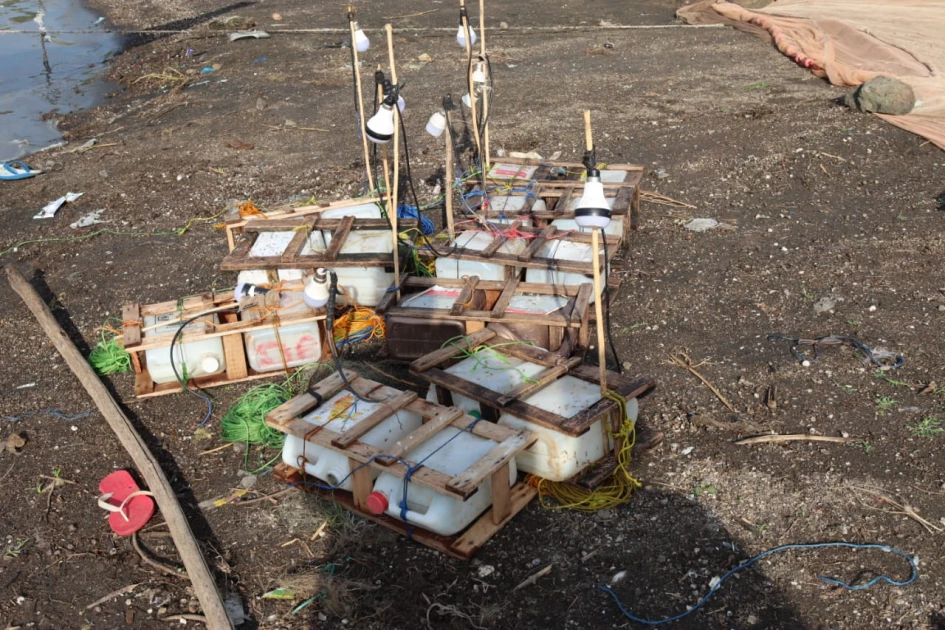Lake Victoria fishermen ride the wave of technological innovation

It is a chilly morning, around 7 a.m., and the beach is already bustling with activity. Fishmongers sort their catch while fishermen prepare for another day on Lake Victoria.

Audio By Vocalize
"Harambee! Harambee!" The rhythmic chants of fishermen fill the air as they pull their boat ashore at Obenge Beach, West Uyoma Ward, Rarieda Sub-County, Siaya County.
It is a chilly morning, around 7 a.m., and the beach is already bustling with activity. Fishmongers sort their catch while fishermen prepare for another day on Lake Victoria.
I had scheduled an interview with fishermen who specialize in catching Silver Cyprinid, locally known as ‘omena.’
To my surprise, they appeared far more energetic than I had expected, despite spending the entire night at sea.
Something had changed over the years—an improvement in their working conditions was evident.
Erick Omondi, a seasoned fisherman, attributes their increased efficiency to advancements in fishing technology.
"Nowadays, we use engine boats instead of canoes that relied entirely on paddles," he explains. "This allows us to cover longer distances without getting exhausted."
Beyond engine-powered boats, other innovations have significantly transformed the trade. Michael Ogudha, a fisherman with over a decade of experience, highlights the shift from paraffin-powered pressure lamps to modern electric lamps.
"Back in 2006, we relied on pressure lamps that required paraffin. They were fragile, and a single mishap could ruin an entire night's catch. Glass breakages were common, and any spillage of paraffin contaminated the fish," he recalls. "Now, with electric lamps, we simply charge them and press a button—no risks, no mess."
Fishmonger Rose Arina affirms this transformation. "Omena is fresher and free from the paraffin smell. In the past, customers refused to buy contaminated fish, leading to daily losses. Now, we no longer have that problem."
The transition from traditional floaters made of papyrus reeds to plastic floaters has also enhanced efficiency. Joseph Odero, another fisherman, explains that the new floaters, which are bright orange, improve visibility and securely hold the lamps. "They make fishing easier and more enjoyable," he says.
Joshua Odeyo, the assistant chairperson of the Obenge Beach Management Unit (BMU), acknowledges the broader modernization efforts.
"The introduction of engine boats, electric lamps, plastic floaters, and life jackets has made fishing more reliable. These advancements also improve safety by reducing accidents."
Despite these advancements, challenges persist. Security remains a significant concern, with Ugandan pirates threatening both fishermen and their equipment.
"Piracy is a major problem," says Odeyo. "However, we appreciate the Siaya County Government and the fisheries department for providing patrol boats and life jackets, which assist us in emergencies."
Another pressing issue is the unreliable power supply at Obenge Beach, which hampers fish preservation. Jane Owuor, a fishmonger, laments the lack of refrigeration facilities. "Frequent power blackouts force us to rely on the sun for drying fish, which is unpredictable, especially during rainy seasons. We urge the county government to establish a modern drying facility to help mitigate losses."
As the fishing industry embraces modern technology, these advancements continue to transform the livelihoods of fishermen and fishmongers alike. However, addressing security and infrastructure challenges remains crucial for sustainable growth in the sector.


Leave a Comment